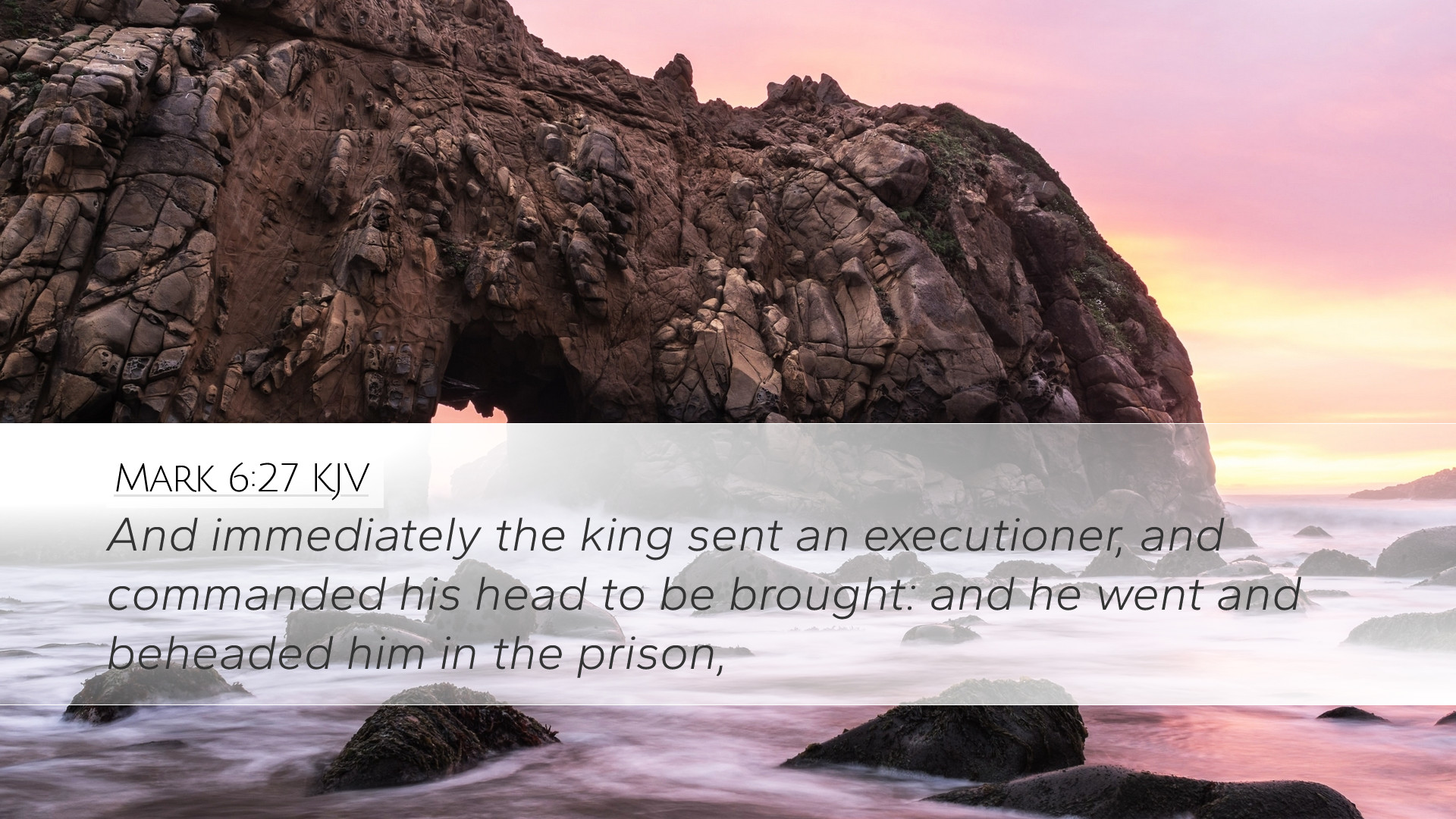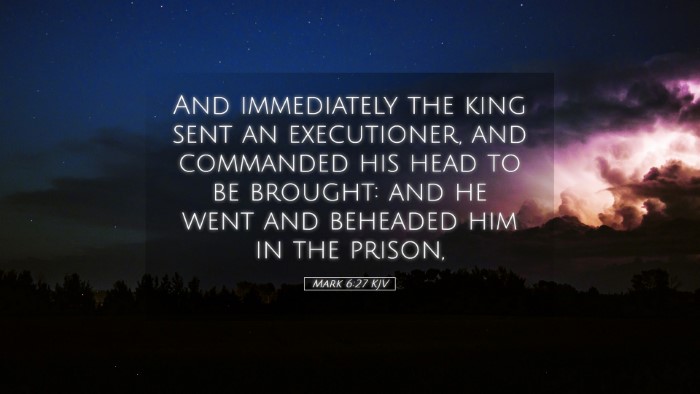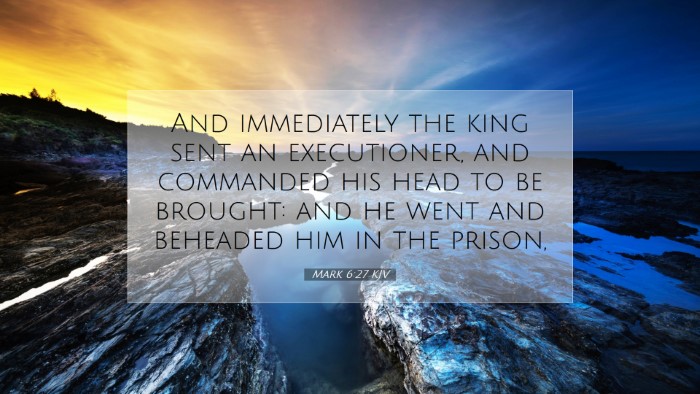Commentary on Mark 6:27
Mark 6:27 (KJV): "And immediately the king sent an executioner, and commanded his head to be brought: and he went and beheaded him in the prison."
Introduction
The verse presents a stark and somber account of the fate of John the Baptist, executed under the orders of King Herod. This passage serves not only as a historical record but also as a theological reflection on themes of power, morality, and the consequences of sin. The execution of John the Baptist represents a significant turning point in the narrative of the Gospels, where personal vendettas and political expediency collide with prophetic truth.
Contextual Analysis
Matthew Henry observes: The circumstances leading to the execution highlight the tension between the different influences in Herod's life. John had openly denounced Herod’s marriage to Herodias, his brother's wife, which stirred animosity and fear. The situation escalated during Herod's birthday feast, reflecting the interplay between festive indulgence and moral compromise.
Albert Barnes comments: The request for John’s head was made at a moment of emotional impulsivity rather than rational deliberation, showcasing how emotions and desires can lead to dire consequences. Herodias’s spite not only sought revenge but underscored Herod's moral failure in succumbing to her wicked demands.
The Role of Herod
Herod is depicted as a complex character—an emblem of political power intertwined with personal weakness. The ordered execution illustrates his unwillingness to confront the truth represented by John the Baptist.
- Fear of the Public: Herod's decision was influenced by his concern over public perception. Despite being captivated by John's teachings, he allowed public opinion and his own pride to dictate his actions.
- Internal Conflict: Herod's apprehension towards John’s prophetic voice revealed an internal struggle between his desire for righteousness and his capitulation to sin.
- Moral Compromise: The willingness to execute an innocent man to satisfy personal vendetta and political pressures is a glaring example of moral compromise that resonates in contemporary societies.
The Executioner and the Act of Beheading
The execution was carried out by an unnamed executioner, symbolizing the faceless nature of sin and injustice. The act of beheading reflects not only the brutality of the times but also the complete rejection of prophetic authority.
Adam Clarke notes: The specific request for John’s head represents a deep-seated animosity by Herodias, showcasing how personal vendettas can lead to catastrophic moral failures. The execution serves as a reminder of the lengths to which individuals may go to silence truth when it threatens their personal agendas.
Theological Reflections
This passage invites us to reflect upon several profound theological themes:
- The Cost of Prophecy: John the Baptist's life and death underscore the price of standing firm in faith and truth, often at great personal cost. His martyrdom serves as a precursor to the ultimate sacrifice of Christ, who also faced persecution for speaking out against sin.
- The Nature of True Power: Herod’s actions illustrate the distortion of power when disconnected from righteousness. True authority is aligned with justice and truth, contrasting sharply with the tyrannical rule exemplified by Herod.
- God’s Sovereignty in Suffering: The account suggests that even in apparent defeat, God’s overarching plan continues to unfold. John’s death is not the end of his prophetic ministry; it solidifies his role within the redemptive narrative of Scripture.
Lessons for Today
This passage challenges modern readers—pastors, theologians, and laypeople alike—to consider how they respond to prophetic voices in their own lives. The temptation to dismiss uncomfortable truths for the sake of personal gain or societal acceptance remains a pressing issue.
- Embrace Truth: Like John, we are called to stand firm in proclaiming truth, regardless of societal pressures or personal costs.
- Evaluate Influences: Understanding the influences that shape our decisions—whether they stem from fear, pride, or external pressures—is crucial for maintaining moral integrity.
- Expect Suffering: Following Christ often leads to challenging paths. We must be prepared to endure hardship for the sake of our faith, modeling resilience in a world that can be hostile toward righteousness.
Conclusion
The narrative surrounding Mark 6:27 provides deep insights into human nature, leadership, and the cost of discipleship. By exploring the layers of this account, we engage in a necessary dialogue about truth, justice, and the call to prophetic witness in a world fraught with moral ambiguity.
The story of John the Baptist is not just a historical account but a timeless reminder that the pursuit of righteousness may lead to trials and tribulations, yet remains a vital aspect of the Christian journey.


